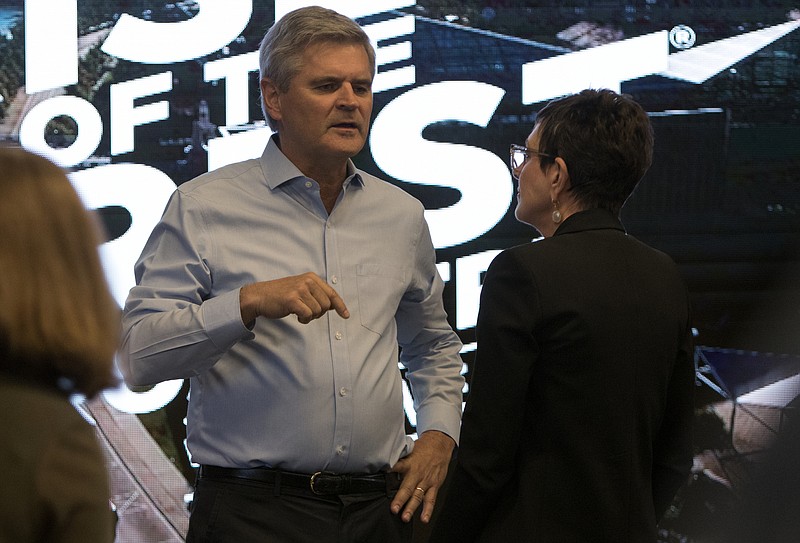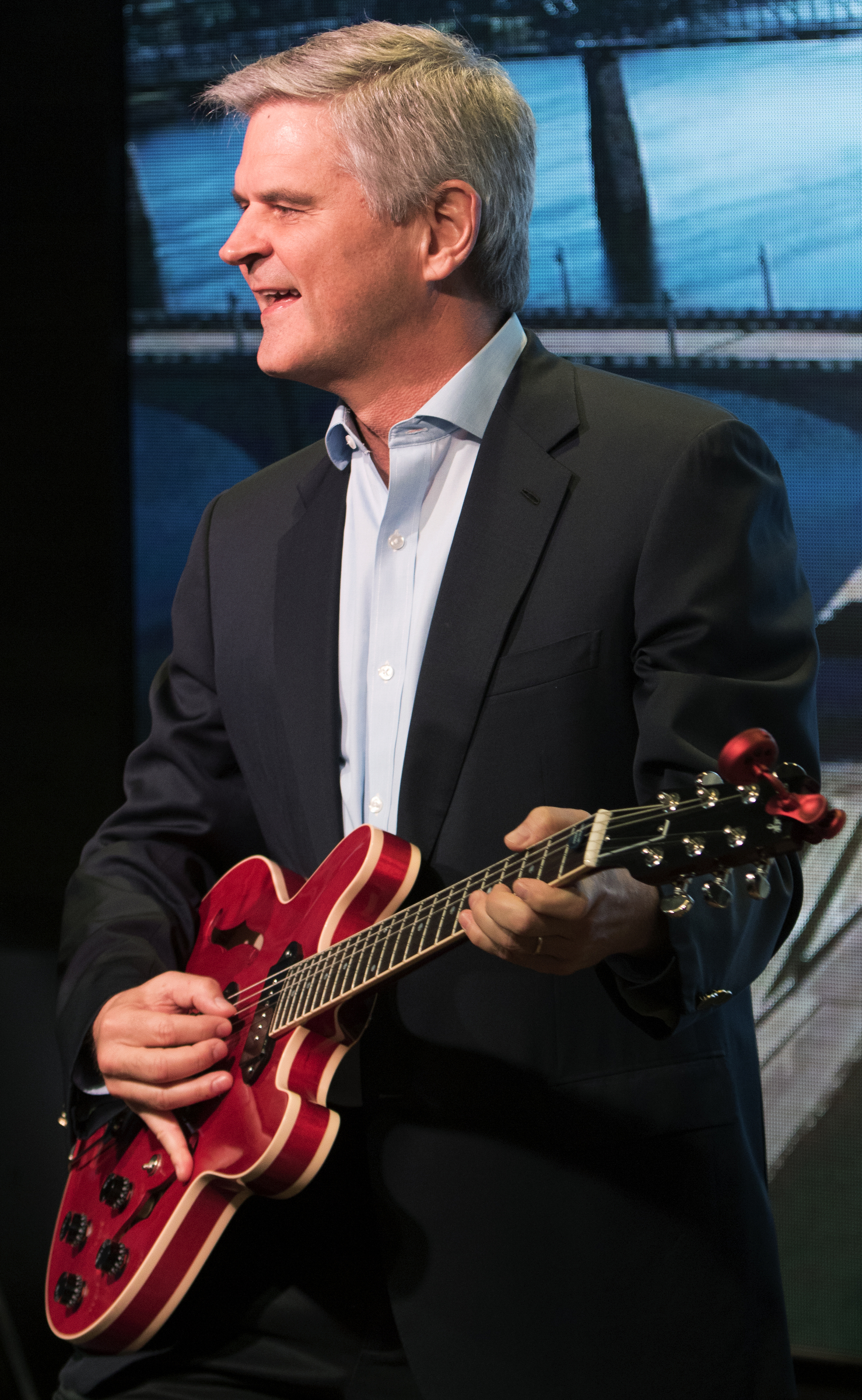Chattanooga area business startups face an uphill climb in attracting venture capital to help fuel the growth of their companies, according to entrepreneur and AOL founder Steve Case.
Last year, three states - California, New York and Massachusetts - attracted 75 percent of all venture capital, says Case. California alone wooed 50 percent of the total, he says. Tennessee, meanwhile, landed just 1 percent.
"What that means is that entrepreneurs in California get every week what entrepreneurs in Tennessee get every year," says Case, who came to Chattanooga in May for his Rise of the Rest seed fund tour aimed at making it easier for startups to launch businesses in places other than in Silicon Valley or on the East Coast.
As worrying, Case says, is that 90 percent of venture capital went to men last year. Only 1 percent was landed by black entrepreneurs, he says.
"It's not right and it's not smart," says Case. "We're trying to spread venture capital more broadly."
One locally based fund has helped try to take away some of the disproportionate distribution of venture capital. In 2013, a group of female investors raised $2.5 million to organize one of the nation's first female-led venture funds known as the Jump Fund.
Kristina Montague, the fund's managing partner, calls Chattanooga "a city full of entrepreneurs," adding that the Scenic City's startup community has "really picked up steam" the last five years.
But, she says, the Jump Fund wasn't seeing women engaged as investors. Also, women-led companies weren't being invested in throughout the Southeast, Montague says.
"We looked around," she says. "How are we going to solve that? Lets get some capital together."
A second round of capital funding for the Jump Fund has about $8 million to $9 million to invest, Montague says. Today, the fund has 22 companies in its portfolio across the Southeast.
The company that first exited the fund was run by a black woman in the technology sector who sold the business to Amazon, Montague says.
"There are strong entrepreneurs making returns out there and they might look different than you usually think," she says. "I think we've proven that in multiples the last three years."
Still, Montague adds, the Jump Fund today is the only women-led, women-focused fund in the Southeast.
"We don't want to continue to be that," she says. "We want to see more access to capital for all entrepreneurs."
Marcus Shaw, who heads the Chattanooga business accelerator The Company Lab, calls the Jump Fund "a fantastic early stage seed fund."
Shaw also is working on making Chattanooga a KIVA city for seed capital investments. KIVA, a San Francisco-based nonprofit, uses crowdsourcing to raise money for small business loans. The Chattanooga City Council has agreed to let the city's Office of Multicultural Affairs partner with Co.Lab to form a local KIVA Chattanooga office.
Chattanooga also has benefited by other seed and venture capital funds, including the Renaissance Fund and the Dynamo Fund which collectively raised nearly $30 million for local startups and growing small businesses.
J.D. Vance, who is managing director of Case's Revolution fund and author of the best-selling memoir "Hillbilly Elegy," recalls some of the costs to a community of not investing in startups, having grown up in an Ohio town that was struggling with a lot of job loss and social dysfunction.
"I think about the human impact and the human cost of the human potential of investing in entrepreneurs or not investing in entrepreneurs," he says.
Vance says that when he weighs investing, he obviously cares about making a positive return. But, he says he also thinks about the impact such investment can have on communities which can have high-quality, sustainable, durable job growth.
"I am mindful that if you only have those opportunities existing in three places, you'll have a lot fewer people moving to opportunities and a lot fewer kids living the American dream," he says.
In places such as where he grew up, people there told youngsters that they had just one option - they had to get out, Vance says.
"There's no education opportunity. There's no work opportunity," he says.
Another locally based group which is plowing money and expertise back into the startup ecosystem is the Chattanooga-based venture incubator Lamp Post Group.
Ted Alling, who with Barry Large and Allan Davis are partners in Lamp Post Group, says they've put $36 million back into the community.
They've supported more than two dozen startups, says Alling, who with his partners started and then sold Access America Transport.
"My high school football coach used to say the team that wants it the most will win," he says. "I believe that the city that wants it the most will win. We're super, super committed to this place. We're putting our money where our mouth is."

